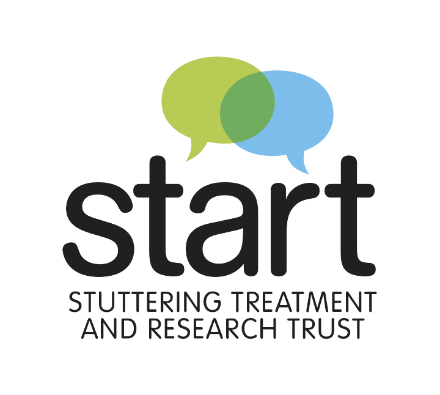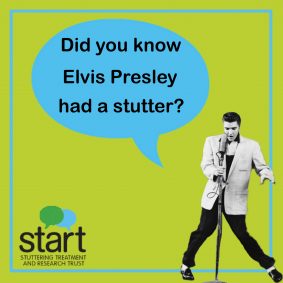If you’re someone who doesn’t stutter, you might have a number of questions about what to do when talking to someone who does, and how you can best help them. If you’re worried you might offend them, or you’re unsure of the best way to phrase a question, then read on.

As with everything else, people who stutter are all very different, and as a result, individuals may have their own preferences on what they want listeners to do when they are stuttering. For instance, it’s generally considered that the cardinal rule of helping a person who stutters is to let them finish their sentence, but there are still a few people who stutter who prefer others to finish their sentences for them – to “get it over with” as some have described it. It’s good practice to always ask someone what they prefer, but if you’d rather avoid it, then it’s best to let them finish.
So, other than letting them finish, what are other ways you can help a person who stutters?
-
Don’t tell them how to stop stuttering
Unless you are a qualified Speech Language Therapist, it usually isn’t helpful if you tell them how to stop stuttering, or if you’ve found a cure. The majority of people who stutter have done so most of their lives, and have likely been through therapy and done their own research on how to improve their fluency. There is no known cure, and often anecdotes of your own family members or acquaintances who have cured their stutter will not help the person you are talking to.
-
Don’t make jokes about stuttering
Although stuttering remains a punchline for many comedians, writers, and everyday people, it’s often no laughing matter for a person who stutters. It can be an extremely debilitating experience, and to find that your dysfluency is the butt of a joke can be tough.
-
Let them know you are here to talk

Stuttering can be very isolating, and people who stutter often feel as though they miss out on social interactions that other people have. If someone in your life stutters, make sure they know that you’re there for them, and that you support them. Letting them finish their sentences is the first step, but being a great friend is even better. Listening actively and making sure they know it’s ok to talk about stuttering with you is a great way to help a person who stutters.
-
Stand up for them
While we hope there never comes a time that a person who stutters is bullied, or discriminated against either at school, in the workplace, or anywhere else, the reality is that these situations can still happen. If a person who stutters in your life is experiencing negativity or discrimination, it’s important that you discuss it with them and stand up for them.
-
Stand with them
Every person who stutters is different. Some prefer to accept their stutter and leave it as is, while others are more interested in treatment and exercises to help with fluency and confidence. Some find that they have anxiety due to their stutter, whereas others don’t. Some prefer you to speak for them, while others want you to let them finish. If there is a person in your life who stutters, find out what works best for them, and stand with them in their decisions.



 The reason that both stutter and stammer exist and describe the same
The reason that both stutter and stammer exist and describe the same 

 Most communication is two-way. It involves an unpredictable conversation, where you can’t plan your next answer. It also holds the potential for the other person or people to interrupt, or to become impatient. Singing, however, is mostly one-way communication, and eliminates the possibility for these challenges. We have often memorised the lyrics when we sing, rather than facing an unpredictable conversation, and unless we are at karaoke it’s unlikely anyone in the audience is planning to interrupt.
Most communication is two-way. It involves an unpredictable conversation, where you can’t plan your next answer. It also holds the potential for the other person or people to interrupt, or to become impatient. Singing, however, is mostly one-way communication, and eliminates the possibility for these challenges. We have often memorised the lyrics when we sing, rather than facing an unpredictable conversation, and unless we are at karaoke it’s unlikely anyone in the audience is planning to interrupt.







